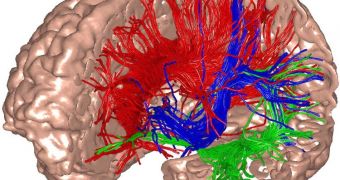Depressed individuals who commit suicide display a number of modifications in a population of star-shaped neural cells called astrocytes. Investigators made this discovery after analyzing a number of brains belonging to suicide victims.
According to the team, it may be that astrocytes also play a role in underlying depression, a condition that sometimes makes people want to end their own lives. The data researchers used in this study were gathered from postmortem examinations of the bodies.
In order to get the most accurate results, investigators focused on a region of the brain called that anterior cingulate cortex (ACC), which past studies identified as being involved in both decision making and mood regulation.
Experts compared astrocytes collected from the ACC of suicide victims to similar nerve cells collected from the ACC of individuals who had died suddenly, without any medical history of psychiatric illness.
Astrocytes belonging to people in the first group were found to be considerably larger than normal. The cells also displayed a lot more branches that scientists knew they should find. This discovery indicates that the role these brain cells play in depression has been largely overlooked by science.
Interestingly, the study revealed the aforementioned differences only in astrocytes located in the brain's white matter, and not in its gray matter as well. The reason why that is important is because white matter is mostly made up of neural pathways, cables that connect various regions of the brain.
At the same time, these conclusions are in tune with data collected by recent investigations, which revealed that changes in neural white matter are correlated to the development of depression. The new work is the first to look for changes at the molecular level.
Details of the work appear in this week's issue of the esteemed journal Neuropsychopharmacology, My Health News Daily reports. The work was led by study researcher Naguib Mechawar, who is based at the McGill University, in Quebec, Canada.
Astrocytes are “not just innocent bystanders,” the expert says. Until now, researchers largely tended to ignore their potential role in explaining depression. Still, he adds, there is currently no explanation for how white matter modifications lead to this condition.
One possible explanation could be that the modified astrocytes impair the usual communications routes that link the anterior cingulate cortex with other regions of the brain. However, this is only speculation at this point, and more research is needed to validate the idea.

 14 DAY TRIAL //
14 DAY TRIAL //